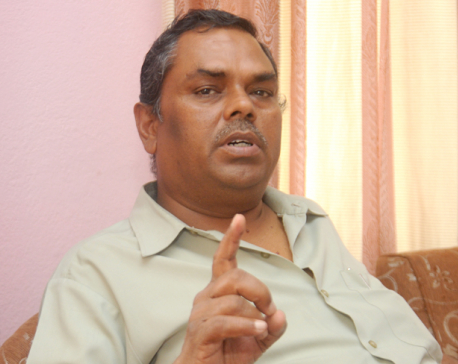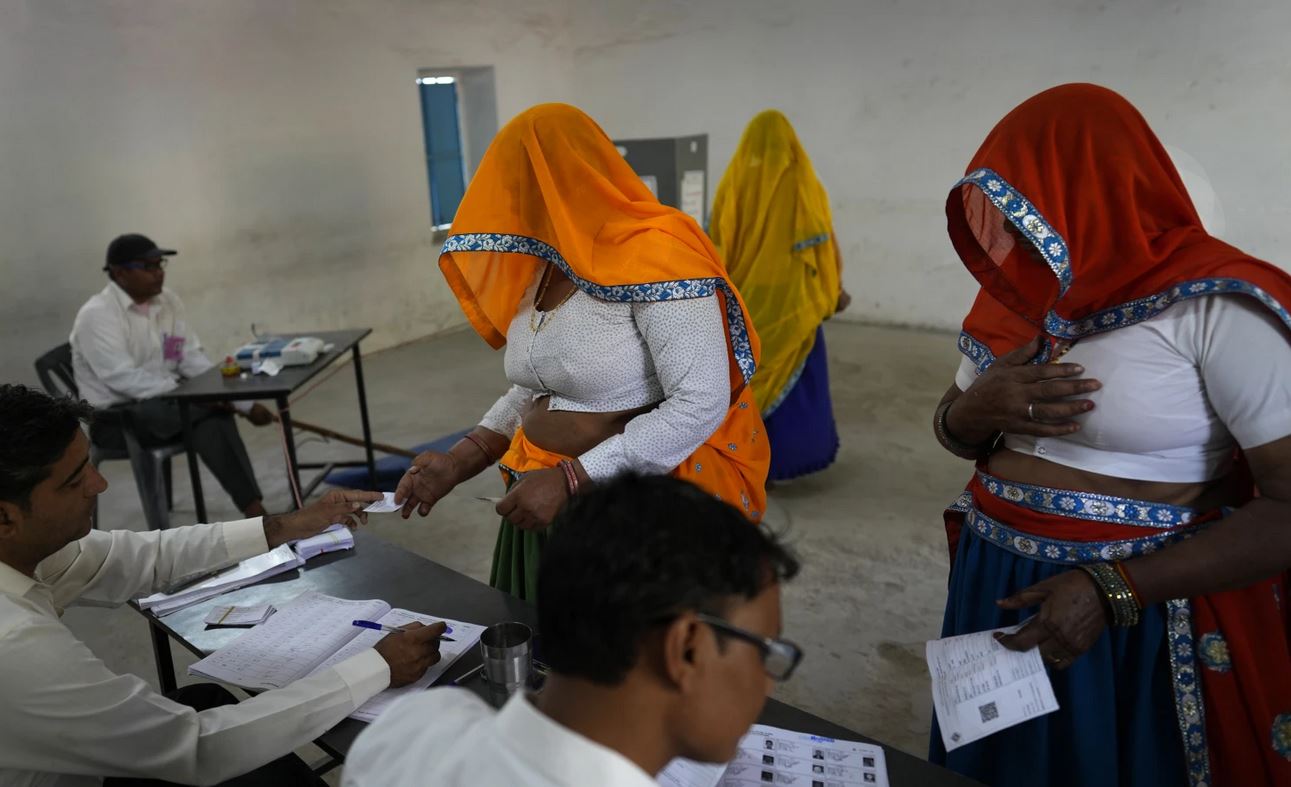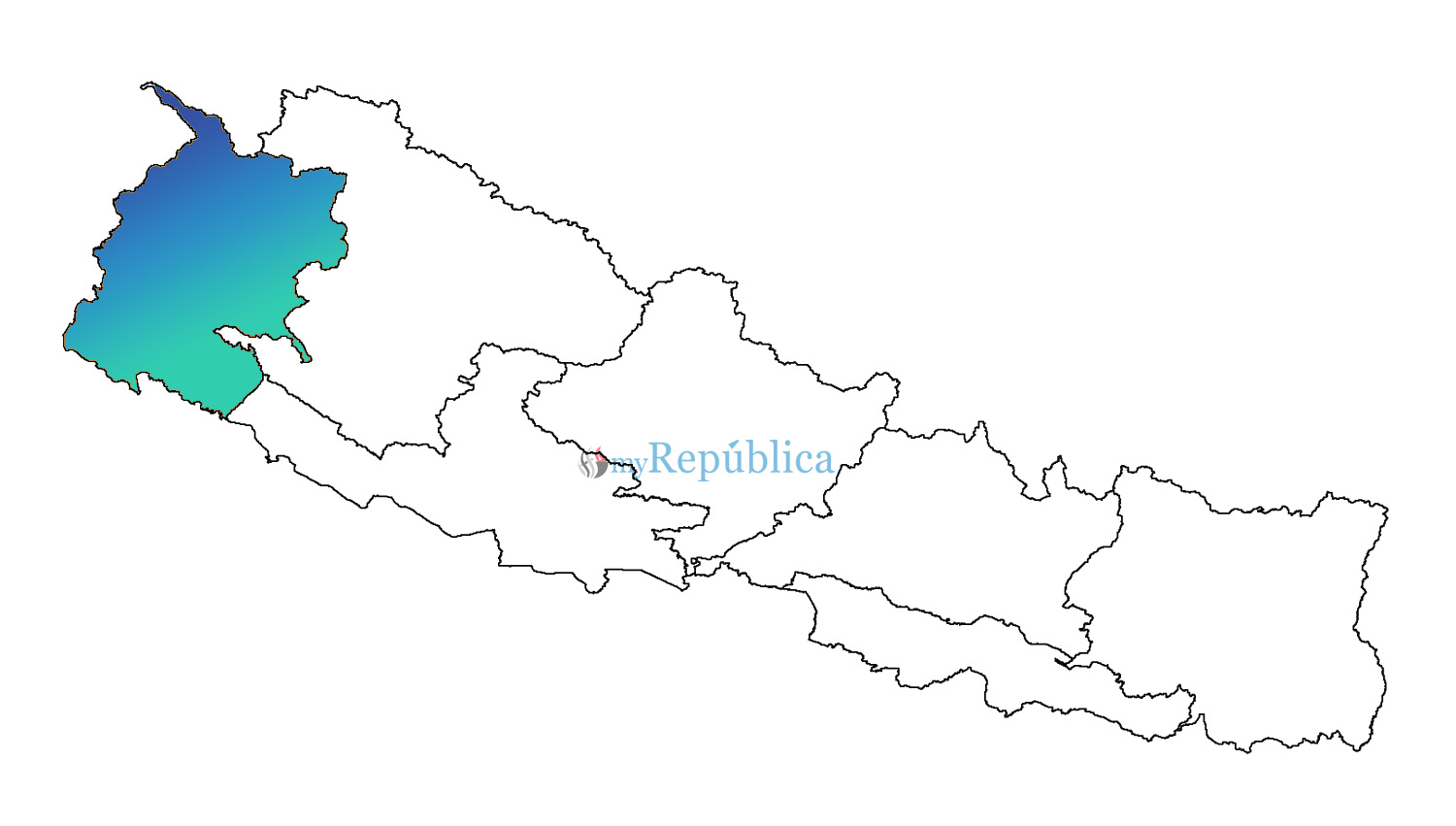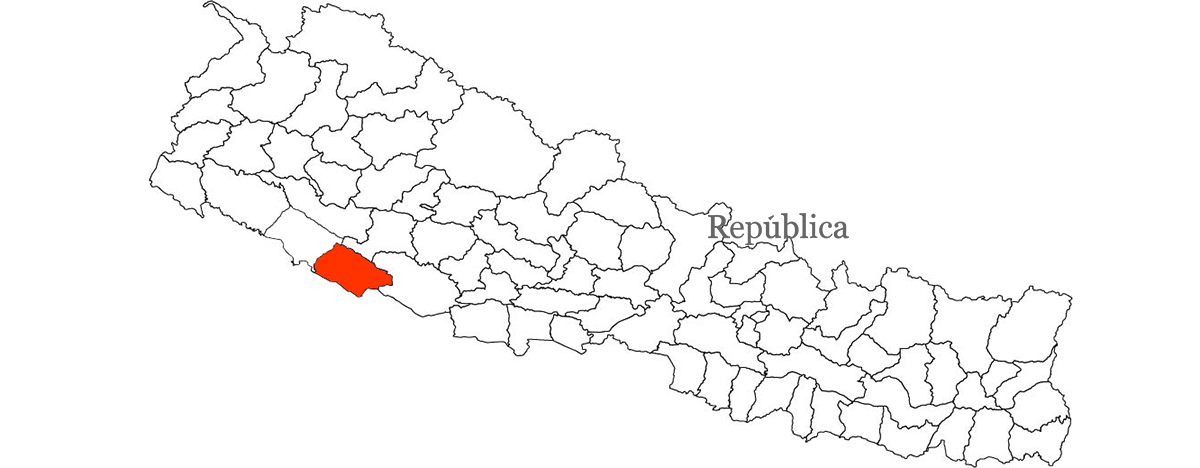
OR
I am a man. I don’t bleed every month. But my mother did and that was the foundation to my birth. Furthermore, I have a child given birth to by my wife. If bleeding is ‘impure or sinful’ then the sanity of our very existence is questionable. Women who menstruate are creators and nurturers of new generations. If the creators are deemed 'impure' how can we, their creations, be 'pure'?
These are a few points we need to ponder upon. We need to seek a rationale, if any indeed exists, for keeping our mothers, sisters, wives, friends and girlfriends isolated from the house and family rituals during their periods.
A couple of weeks back, I met RadhaPoudel, activist and writer, to talk about menstrual stigma. She is so vocal on this issue and has been advocating for dignified menstrual hygiene for a long time. She says ‘regardless of caste, class, education, region, religion, even today the Nepalese has been practicing more than 40 types of restrictions during menstruation including in the USA, UK and elsewhere. The types and degrees of stigma may vary from place to place, caste to caste but there are restrictions where the menstrual blood is considered impure, dirty, bad luck, contaminated, untouchable. Sometimes the restrictions are easily visible and sometimes not and somewhere restrictions are private and somewhere public. Imitating other castes and religions in order to show pride, culture and status is also seen.
Now, the entire world is discussing sanitary pads, tampons and menstrual cups for menstrual hygiene. There has been a lot of advocacy that easy access to sanitary pads can change people’s perception toward the menstrual stigma that exists for hundreds of years. Yes, I do believe, it somehow will bring some good results, if the issue is of hygiene; however, if we are talking about menstruation as a ‘sin’ then I don’t think it will make a huge difference.
In an article published last month in the New York Times, Menstrual Pads Can’t Fix Prejudice, by Chris Bobel, he concludes rather than moving products one should move minds. He further writes, “After all, periods remain taboo in high-income countries where commercial products have been the norm for decades. Challenging the social stigma and disgust directed at the female body must be our main mission — in the developing world and everywhere else. If this moment is going to grow into a movement, it must do more than move products. It must move minds.”
The article clearly depicts the need of change in advocacy. The article also reads, “… Menstrual activism won’t be meaningful if it is reduced to Western-style ‘better living through more consumption.” Does this signify whatever is being advocated is influenced by ‘Western style’? I think it’s time to convince people on their own way especially in the developing countries like Nepal. What we are doing now is teaching them to use ‘sophisticated pads’ replacing the cloths that they have been using for a long time.
As mentioned in the article, let’s not just move products rather let’s move minds. And the ‘minds movement’ needs to start from our own homes.
#MHDay2018
The world now is talking about menstrual hygiene as Menstrual Hygiene Day is celebrated across the world on May 28th every year. This year’s tagline is #NoMoreLimit. In my understanding, no limits should be imposed on a female just because she menstruates.
The important thing is our commitment to make the day successful and meaningful, at the same time we need courage to speak against social stigma which comes along from menstruation.
Nepal marked the day with a slogan ‘enough is enough, let’s break the limit of menstruation’ or in a way ‘time to speak against this discrimination’
I participated in one of the national events where the Minister for Water Supply and Sanitation Bina Magar stated that it is unfortunate that menstruation is linked with religion and god. “In the name of religion and god there shouldn’t be any discrimination but in one way or another we have been supporting and discriminating women,” she says.
This is what I have been talking about. Until you are vocal against this ‘evil practice’ no one is going to help you to overcome this discrimination. In other cases, the perpetrators could be anyone - here it’s the family members who teach you not to do this and that, since your childhood. So it’s us who need to speak against such practice at least at our family level.
I am sorry to say that hundreds of women or men rallying against this stigma will be following the same at the end of the day.
One of the members of the ‘Menstrual Hygiene Policy Drafting Committee’ told me that some of the women members were not convinced about ‘unrestricting’ women during menstruation period. One of the activists from Mid Western Nepal shared that many NGO workers in the area do not eat in the community programs. They pretend to be ‘fasting’. You will be surprised to know the actual reason. The actual reason is they do not want to eat thinking ‘some participants might be going through ‘periods’. Unless we break such perceptions we cannot imagine a dignified life for women.
One of my friends working in an INGO shared that she doesn’t tell her parents about her ‘periods’. According to her, if she tells her parents, they will not let her do everything that she does now. She doesn’t have courage to hurt her parents. In the name of respecting our parents, are we not supporting the ‘evil practice’ and teaching future generations to follow the same practice?
Menstrual Stigma has also been a threat to the Nepal Government’s massive campaign of declaring Nepal an ‘Open Defecation Free’ country. In one of the meetings of Menstruation Hygiene Network, one NGO worker shared that many women do not use toilets during their periods as men, if they found that the toilet had been used by women, would not use them. This means - no matter how many toilets will be built across the country, open defecation will remain a problem due to menstrual stigma.
Most of all, we need commitments from ourselves. We should be convinced that menstruation is no sin.
You May Like This

Sacred Games row: Saif Ali Khan says one might get killed for speaking against government in India
Sacred Games row: Sartaj Singh aka Saif Ali Khan also ended his long kept silence over the controversy and claimed... Read More...

Impeachment motion against CJ Karki is against independence of judiciary: Yadav
KATHMANDU, May 1: Chairperson of the Federal Socialist Forum, Upendra Yadav has strongly criticized the Nepali Congress and the CPN... Read More...






Just In
- Construction of embankments along seven streams begins in Kailali
- 265 cottage and small industries shut down in Banke
- NEPSE lost 53.16 points, while investors lost Rs 85 billion from shares trading last week
- Rainbow tourism int'l conference kicks off
- Over 200,000 devotees throng Maha Kumbha Mela at Barahakshetra
- Indians vote in the first phase of the world’s largest election as Modi seeks a third term
- Kushal Dixit selected for London Marathon
- Nepal faces Hong Kong today for ACC Emerging Teams Asia Cup





_20220508065243.jpg)








Leave A Comment